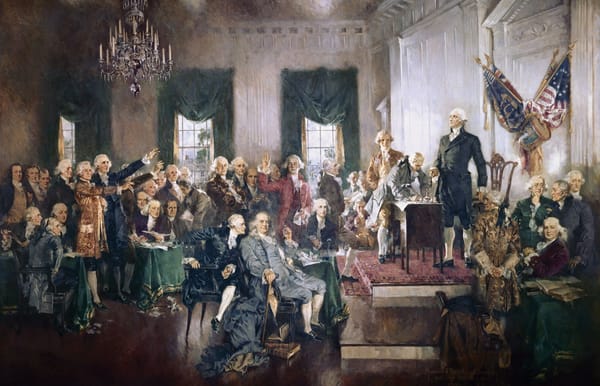Head-to-head: Welfare - Are the Coalition reforms fair?
GH argues for, and Luke Sheldon argues against. Let battle commence...
Yes
GH
For those of you fortunate enough to have read my last two forays into these hallowed pages, you will perhaps be aware that my articles have a certain propensity (apparently) of aligning themselves with the minority view: that, some might claim, of the so-called “1 percent”. This week, after a brief sabbatical from my literary endeavors, I return once again – but this time (perhaps surprisingly) on the side of the majority. In a recent poll, just 19% of those questioned believed that benefits were too low; compared with 62% who felt spending on welfare needed to be reined in.
At the end of the 2010/11 tax year, the Government had spent £202.6 billion on the welfare system. Considering the total spending budget was £701.7 billion, and the fact that only around £500 billion of tax revenue was collected in same period, the cost of welfare handouts and ensuing debate is not a topic to be scoffed at lightly. It does not take much mathematical acuity to notice that these numbers don’t add up: the Treasury’s books don’t tally, not by a long way. In fact, this deficit is being plugged by record levels of borrowing, which in the current economic market has a gargantuan cost. The interest on debt for this financial year was nearly £43 billion, and will continue to rise until this imbalance is corrected. This is not sustainable, and so by consequence, nor is the welfare system. Reform is desperately needed.
The idea that anyone should receive something for nothing defies any sensible logic. Especially here, where many of you freshers are paying sky-high fees to garner the privilege of a university education; accruing vast amounts of debt in the hope that one day your future earning power will be sufficient enough to pay it all off, this is a ridiculous proposition. Why should anybody cruise through life on the back of free money, courtesy of the hard working members of this society?
One might ask how we found ourselves in this mess in the first place? Well, like many other problems with the UK, this can be blamed on the previous Labour governments. Firstly, the new government of 1997 failed to reform the system after not having the balls (pardon the expression) to force the legislation through Parliament after a few nutcase protesters chained themselves to the railings of Downing Street. With hindsight, it is obvious to see that, like many of these childish protests (Occupy included), their removal should have been ordered ‘tout suite’ by the authorities and civilized order restored. There is no place for louts like that in modern society (but more on this another time). However, it was the Brown administration’s failure to address the problem (in a failed bid to gain support amongst the more ignorant) that led to the costs of welfare rising to unsustainable levels. Instead, in a move to lift as many people as possible above the EU’s official definition of poverty, this government raised benefit payments by miniscule amounts to create a few quotable statistics.
In terms of the recent Act, the primary purpose of the legislation is an annual welfare cap of £26,000. One does not have to muster great intellectual capacity to realize that this is by far enough – too much, even. Even living in London it is possible to live on less than £20,000, and that’s a very conservative estimate based on the London Living Wage – a well-known benchmark for an acceptable standard of life. Of course, this isn’t a copious amount of money, though it follows that if one is struggling to live on this amount, then it may be prudent to stop spending money on frivolities such as alcohol and cigarettes (which are – contrary to some beliefs – not an essential item), cut back on other extraneous costs such as Sky TV, and cease buying whatever other ‘bling’ the latest Argos catalogue is spewing forth into today’s homes. And maybe, just maybe, get a job. It’s not as if it’s a right to have all these trappings of ‘luxury’ life funded by the hardworking taxpayer, who actually has to get off the sofa each morning to do more than just get another beer out of the fridge.
At the recent budget, George Osborne predicted that, even taking into account the Welfare Reform Act, the welfare budget would grow to be one third of total government spending by 2015. For a country running at a considerable deficit, at a time when the world economy is in its worst shape since the Great Depression, this is a completely nonsensical position. Put simply, the country cannot afford it, and it is certainly not a necessary expenditure. The last 30 years has seen the United Kingdom become a nation too dependent on the State, mostly due to the vote grabbing, short-term policies of successive Labour governments. Now finally, as the people awaken to realise the catastrophic situation they find the country in, we need to wean the parasitic few off this unnecessary lifeline. Welfare reform could not come too soon, nor can it go too far.
No
Luke Sheldon
the current and proposed welfare reforms are a masterclass in post-Blair spin. Not only is the media awash with willingly repeated misinformation from the government but even the name, “reform”, attempts to re-brand what are actually violent attacks on the poorest in our society. ‘Welfare reform’ suggests improvement, not the complete dismantling of support and the continued transition of a system – meant by name to be for care – into one whose sole purpose is punishment.
Whilst people wait in dreaded apprehension of changes coming in April to housing benefit and council tax, which will drive them deeper into poverty and out of their homes, this government has not even gone through the etiquette of primary legislation to already force through other major changes to our welfare system. No thanks to Labour who put the starting blocks in place for them. These cruel changes have been seen in the lightning roll-out of “workfare”, sanctions and Atos assessments for those claiming to be unfit for work.
One workfare scheme saw nearly 50% of the people referred on to it drop off the welfare rolls in the run-up to starting the forced, unpaid work. The majority will now have to survive on nothing. The government’s response to this data was merely to expand the scheme as they said it showed it was working. And if they cannot indirectly force you off the benefit you are entitled to when in need, they will kick you off by just taking your money away using sanctions. These have been shown in a Guardian investigation to be targeted at those with learning disabilities and mental illness as Job Centre staff were forced to meet government imposed targets. The use of arbitrary targets to deny people vital benefits has also been found to be the centre of the humiliating assessments carried out by Atos on people’s ability to work – leaving half of all people deemed fit for work with no benefit at all.
This willingness to whip away the meagre support demonstrates either absurd naivety, or pure cruelty from those in power. From statements it is assumed that either people are working in an apparently booming black market (an explanation that fraud figures seem to contradict) or the lack of money causes a job to appear from no where in this dead economy. These fairytale endings to a punitive welfare system are a signal of how detached from modern life politicians are. The reality is that of a 30 year old man I met who had to go foraging for food or the thousands flooding to food banks each week as they have literally no other way to survive.
Although David Cameron championed the disturbing growth of food banks this takes away the vaguely reliable support of the welfare state and replaces it with ad hoc and uncoordinated charity. Not only is charity accompanied with a giant dollop of judgment and moralising that Orwell was only too aware of (though it’s not like this is absent from the job centre either) but also it is only there at the will of the providers and not for those in need. Too often food banks have bare shelves as donations are too small and the need too great. Nearly all limit people to only 3 claims, which with the maximum sanctions going up to 3 years will barely get people through a month of their 36 months of punishment. The replacement of state support by charities has had tragic consequences in the death of an immigrant child and mother which has been brought to light by Westminster council. Not provided with the welfare to survive they were left to an inadequate charity system that ended with the child starving. As Lambeth council prepare to provide direct funding to local food banks as they simultaneously cut council tax benefit the case of the asylum seekers in Westminster paint a bleak picture of the future of welfare under these “reforms”.
As support at the bottom is ripped away in the name of “budgetary responsibility” private companies are happily lapping up this welfare cash. Companies such as Argos are replacing staff with job seekers, paid for out of the benefits budget. The work programme, a monumental failure at getting people into work that has managed to miss even the employment targets that were expected if no money was spent at all, is sending £5 billion the way of companies – many of whom have had fraud allegations against them as they seek to steal more money. Atos is also making a round £100 million from denying disabled people vital funds whilst McDonald’s slyly pocketed £10 million from an employment scheme without creating a single job. And as Cameron announces £10 billion pounds of fresh welfare cuts at the party conference last week he’s giving the final go ahead for £2 billion pounds to be splashed on IT companies putting together the doomed universal credit. These handouts are not a sign of austerity, but as social insecurity soars from these “reforms” we will be left with only a corporate welfare system.







